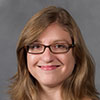This article is more than 5 years old.
This November I was fortunate to participate in the 2014 Triangle Scholarly Communication Institute.[1]

Early publicity surrounding the request for proposals encouraged prospective participants to take the following approach when putting together proposals:
Put together a working group that includes not just people you regularly interact with, but also people you want to work with but haven’t yet been able to. We’ll cover costs for your team to spend four days together in Chapel Hill, NC, in an Institute that’s part retreat, part seminar, part development sprint, part unconference.
You set the agenda, you define the deliverables. We bring everybody together and supply the environment and a network of peers to help stimulate and develop creative thinking and provide a diversity of perspectives about changes in research methods, publishing, digital humanities, digital archives, or other topics related to transformations in scholarly communication.
In short, the Institute provided teams the time and space to germinate actionable ideas in the realm of scholarly communication, broadly defined.
I was a member of the Publishing Makerspace team, whose aim was to have a creative discussion about what publishing is and what it can become. The members of our group included:
- Courtney Berger, Senior Editor & Editorial Department Manager, Duke University Press
- Marjorie Fowler, Digital Asset Coordinator, UNC Press
- John D. Martin III, Doctoral Fellow, School of Information and Library Science, University of North Carolina at Chapel Hill
- Sylvia K. Miller, Senior Program Manager, Consortium of Humanities Centers and Institutes
- David Phillips, Associate Professor of Interdisciplinary Humanities, Innovation, Creativity, and Entrepreneurship (ICE), and Women’s, Gender and Sexuality Studies at Wake Forest University
- Chelcie Juliet Rowell, Digital Initiatives Librarian, Z. Smith Reynolds Library, Wake Forest University
By the end of the Institute, we had come to the collective realization that what we were proposing was a workshop series for multimodal publishing that would bring together people who have different kinds of expertise to contribute to the publishing endeavor. What is multimodal publishing, you ask? Possible elements of a multimodal scholarly project might include:
- a book to be published by a scholarly press
- audio or video interviews
- documentary film
- photographs
- blogs and other kinds of reflective or personal narrative
- public or collective bibliographies
- physical or virtual exhibits
- maps and other visualizations such as 3D models and virtual worlds
- digital collections
- journal articles
- print-on-demand essays or pamphlets
With that list of formats of scholarly publishing in mind, it’s easy to recognize that there are many experts in producing these rich published works — scholars, publishers, librarians, designers, programmers and other technologists — but their expertise doesn’t reside in one place. A Publishing Makerspace workshop would provide a space for these individuals to collaborate more fully.
To learn more about our vision for a series of Publishing Makerspace workshops — the problem it aims to address, the appeal to different communities, the format and expected outcomes of a workshop — please visit the blog post introducing our working group in advance of SCI, as well as our blog post summarizing our elevator pitch for the Publishing Makerspace, which we presented on the final morning of SCI.
Our next major step will be developing pilots for Publishing Makerspace workshops. I’m very much looking forward to being a part of this continuing effort.
1. [Return to top.] From 2003–2013 the Scholarly Communication Institute (SCI) was hosted at the University of Virginia, with funding from the Mellon Foundation. This year, supported by a new Mellon grant, SCI transitioned to the Research Triangle, hosted by Duke University.

1 Comment on ‘Chelcie at the 2014 Triangle Scholarly Communication Institute’
I look forward to hearing more about this exciting project surrounding publishing in a variety of forms.